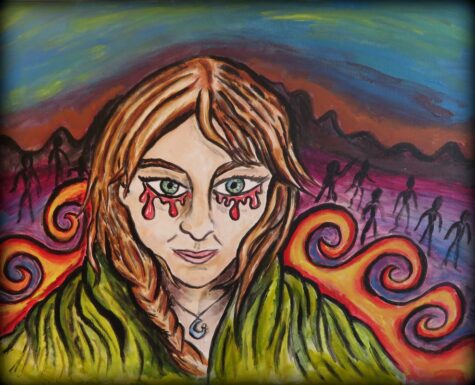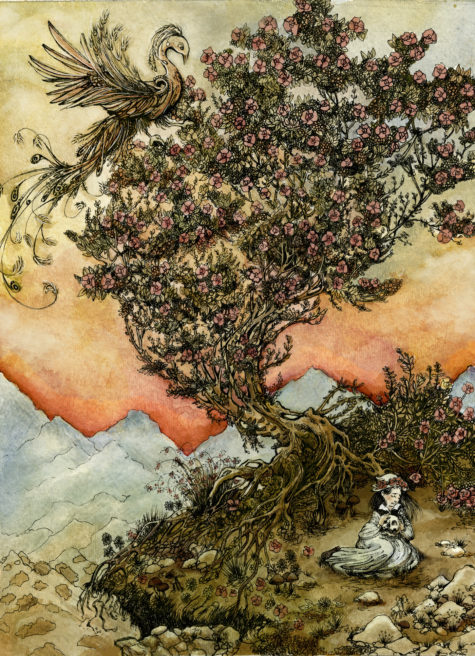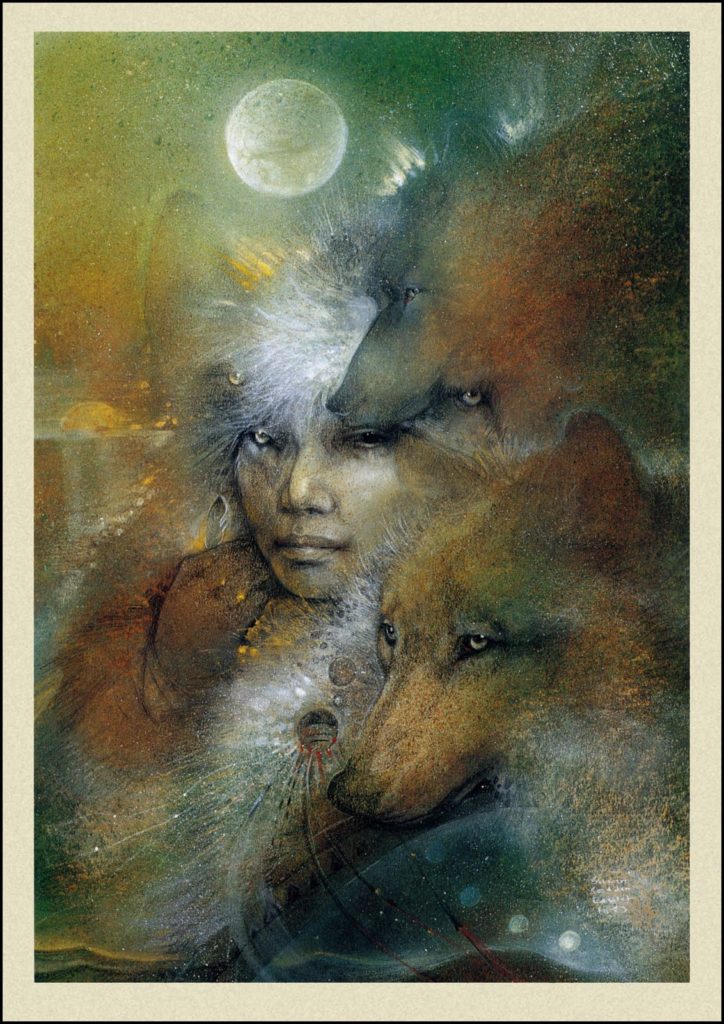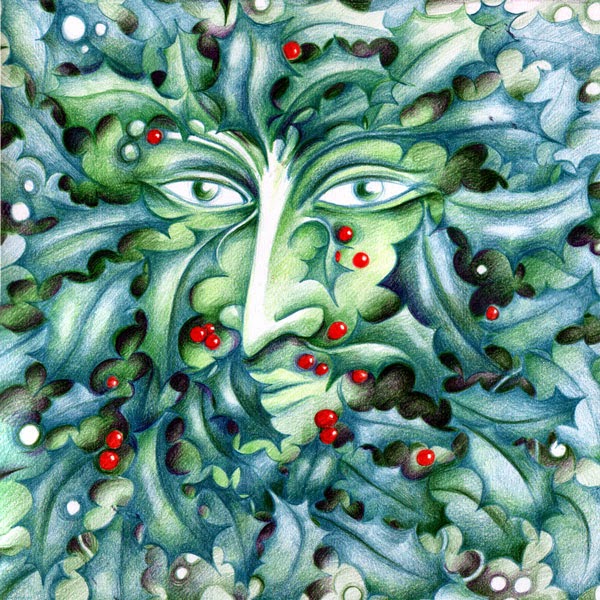Bones
the bones of my enemies

rage has a way of awakening
the sacred fiery feminine within me
i suppose i should be accepting of flippant
dismissals and easily broken
plans(promises)
after all, it is what is expected of my gender—
to be silently accepting
to be smiling and forever forgiving
to be blind to your *******.
but I’m not that kind of *****.
the waters of many rivers flow in my veins
over the rocks and thorns that are growing inward in my inner darkness
wise and warrior women of my past lives swim in these brackish tides and they
are having none of your **** today
there is a predator that hunts in the base of my skull
that loves to feed on
boys {I would say ‘friends’ but none of you are deserving of that title}
like
you
through heavy breaths and gasps between too hot sobs this creature is released
and it reminds me
with the worst of pain
that i
am stronger than you
that i
am stronger than anything within your petty soul
we’re all made of energy and mine is too bright to be diminished by the likes of you
while i feel worthless and want to destroy myself
{because the easiest way not to feel
is to bring blood,
to bring forth ribs,
and cheek bones, and burns—— for the longest while I thought the fault lied within myself, that I was worthless and disposable, but now I see that I’ve only been attracted to the weaker breed of human because you are easy to manipulate. You were stupid enough to consider my compassion a license to abuse my over giving heart}
this animal keeps me in line, holding my hands within its claw riddled appendages
tight enough to bring blood, holding me still until my cries turn into war songs
my frantic heart beats into the sound of war drums.
my tears become paint streaking my face, readying me for another battle.
the scorpion ever present in me rises, barb dripping with the poison
my tongue would love to lay into your psyche
but you aren’t worth my words.
my words are my livelihood and nothing i could say could
every arouse any interest nor care from such a small minded individual as yourself
whose ambitions are the small fractions of debris beneath my scarred feet.
in this holy and reverent cold I thought I needed the warmth of companions, but I realized I was skinning myself raw to cover others who would only ***** out the flame keeping me alive.
my heart thrives in this harsh season and the skeleton of the scorpion comes alive in solitude.
the warrior woman within me is reborn this night.
she has watched my neglect and has pulled me into her armed embrace
and tells me through stoney and unforgiving eyes
that you were never worthy of my radiance
Werewolf Bones – A Haunting
From the book Werwolves, by Elliott O’Donnell, first published in 1912, we have this account of a Werewolf haunting narrated by a Mr. Warren, who at the time he saw the phenomenon was staying in the Hebrides, which part of the British Isles is probably richer than any other in spooks of all sorts.
“I was about fifteen years of age at the time,” Mr. Warren said, “and had for several years been residing with my grandfather, who was an elder in the Kirk of Scotland. He was much interested in geology, and literally filled the house with fossils from the pits and caves round where we dwelt.
One morning he came home in a great state of excitement, and made me go with him to look at some ancient remains he had found at the bottom of a dried-up tarn. ‘Look!’ he cried, bending down and pointing at them, ‘here is a human skeleton with a wolf’s head. What do you make of it?’
I told him I did not know, but supposed it must be some kind of monstrosity. ‘It’s a werwolf!’ he rejoined, ‘that’s what it is. A werwolf! This island was once overrun with satyrs and werwolves! Help me carry it to the house.’
I did as he bid me, and we placed it on the table in the back kitchen. That evening I was left alone in the house, my grandfather and the other members of the household having gone to the kirk. For some time I amused myself reading, and then, fancying I heard a noise in the back premises, I went into the kitchen.
There was no one about, and becoming convinced that it could only have been a rat that had disturbed me, I sat on the table alongside the alleged remains of the werwolf, and waited to see if the noises would recommence. I was thus waiting in a listless sort of way, my back bent, my elbows on my knees, looking at the floor and thinking of nothing in particular, when there came a loud rat, tat, tat of knuckles on the window-pane.
I immediately turned in the direction of the noise and encountered, to my alarm, a dark face looking in at me. At first dim and indistinct, it became more and more complete, until it developed into a very perfectly defined head of a wolf terminating in the neck of a human being. Though greatly shocked, my first act was to look in every direction for a possible reflection – but in vain. There was no light either without or within, other than that from the setting sun – nothing that could in any way have produced an illusion.
I looked at the face and marked each feature intently. It was unmistakably a wolf’s face, the jaws slightly distended; the lips wreathed in a savage snarl; the teeth sharp and white; the eyes light green; the ears pointed. The expression of the face was diabolically malignant, and as it gazed straight at me my horror was as intense as my wonder.
This it seemed to notice, for a look of savage exultation crept into its eyes, and it raised one hand – a slender hand, like that of a woman, though with prodigiously long and curved finger-nails – menacingly, as if about to dash in the window-pane.
Remembering what my grandfather had told me about evil spirits, I crossed myself; but as this had no effect, and I really feared the thing would get at me, I ran out of the kitchen and shut and locked the door, remaining in the hall till the family returned.
My grandfather was much upset when I told him what had happened, and attributed my failure to make the spirit depart to my want of faith. Had he been there, he assured me, he would soon have got rid of it; but he nevertheless made me help him remove the bones from the kitchen, and we reinterred them in the very spot where we had found them, and where, for aught I know to the contrary, they still lie.”
The Juniper Tree
Long ago, at least two thousand years, there was a rich man who had a beautiful and pious wife, and they loved each other dearly. However, they had no children, though they wished very much to have some, and the woman prayed for them day and night, but they didn’t get any, and they didn’t get any.
In front of their house there was a courtyard where there stood a juniper tree. One day in winter the woman was standing beneath it, peeling herself an apple, and while she was thus peeling the apple, she cut her finger, and the blood fell into the snow.
“Oh,” said the woman. She sighed heavily, looked at the blood before her, and was most unhappy. “If only I had a child as red as blood and as white as snow.” And as she said that, she became quite contented, and felt sure that it was going to happen.
Then she went into the house, and a month went by, and the snow was gone. And two months, and everything was green. And three months, and all the flowers came out of the earth. And four months, and all the trees in the woods grew thicker, and the green branches were all entwined in one another, and the birds sang until the woods resounded and the blossoms fell from the trees. Then the fifth month passed, and she stood beneath the juniper tree, which smelled so sweet that her heart jumped for joy, and she fell on her knees and was beside herself. And when the sixth month was over, the fruit was thick and large, and then she was quite still. And after the seventh month she picked the juniper berries and ate them greedily.
Then she grew sick and sorrowful. Then the eighth month passed, and she called her husband to her, and cried, and said, “If I die, then bury me beneath the juniper tree.” Then she was quite comforted and happy until the next month was over, and then she had a child as white as snow and as red as blood, and when she saw it, she was so happy that she died.
Her husband buried her beneath the juniper tree, and he began to cry bitterly. After some time he was more at ease, and although he still cried, he could bear it. And some time later he took another wife.
He had a daughter by the second wife, but the first wife’s child was a little son, and he was as red as blood and as white as snow. When the woman looked at her daughter, she loved her very much, but then she looked at the little boy, and it pierced her heart, for she thought that he would always stand in her way, and she was always thinking how she could get the entire inheritance for her daughter.
And the Evil One filled her mind with this until she grew very angry with the little boy, and she pushed him from one corner to the other and slapped him here and cuffed him there, until the poor child was always afraid, for when he came home from school there was nowhere he could find any peace.
One day the woman had gone upstairs to her room, when her little daughter came up too, and said, “Mother, give me an apple.”
“Yes, my child,” said the woman, and gave her a beautiful apple out of the chest. The chest had a large heavy lid with a large sharp iron lock.
“Mother,” said the little daughter, “is brother not to have one too?”
This made the woman angry, but she said, “Yes, when he comes home from school.”
When from the window she saw him coming, it was as though the Evil One came over her, and she grabbed the apple and took it away from her daughter, saying, “You shall not have one before your brother.”
She threw the apple into the chest, and shut it. Then the little boy came in the door, and the Evil One made her say to him kindly, “My son, do you want an apple?” And she looked at him fiercely.
“Mother,” said the little boy, “how angry you look. Yes, give me an apple.”
Then it seemed to her as if she had to persuade him. “Come with me,” she said, opening the lid of the chest. “Take out an apple for yourself.” And while the little boy was leaning over, the Evil One prompted her, and crash! she slammed down the lid, and his head flew off, falling among the red apples.
Then fear overcame her, and she thought, “Maybe I can get out of this.” So she went upstairs to her room to her chest of drawers, and took a white scarf out of the top drawer, and set the head on the neck again, tying the scarf around it so that nothing could be seen. Then she set him on a chair in front of the door and put the apple in his hand.
After this Marlene came into the kitchen to her mother, who was standing by the fire with a pot of hot water before her which she was stirring around and around.
“Mother,” said Marlene, “brother is sitting at the door, and he looks totally white and has an apple in his hand. I asked him to give me the apple, but he did not answer me, and I was very frightened.”
“Go back to him,” said her mother, “and if he will not answer you, then box his ears.”
So Marlene went to him and said, “Brother, give me the apple.” But he was silent, so she gave him one on the ear, and his head fell off. Marlene was terrified, and began crying and screaming, and ran to her mother, and said, “Oh, mother, I have knocked my brother’s head off,” and she cried and cried and could not be comforted.
“Marlene,” said the mother, “what have you done? Be quiet and don’t let anyone know about it. It cannot be helped now. We will cook him into stew.”
Then the mother took the little boy and chopped him in pieces, put him into the pot, and cooked him into stew. But Marlene stood by crying and crying, and all her tears fell into the pot, and they did not need any salt.
Then the father came home, and sat down at the table and said, “Where is my son?” And the mother served up a large, large dish of stew, and Marlene cried and could not stop.
Then the father said again, “Where is my son?”
“Oh,” said the mother, “he has gone across the country to his mother’s great uncle. He will stay there awhile.”
“What is he doing there? He did not even say good-bye to me.”
“Oh, he wanted to go, and asked me if he could stay six weeks. He will be well taken care of there.”
“Oh,” said the man, “I am unhappy. It isn’t right. He should have said good-bye to me.” With that he began to eat, saying, “Marlene, why are you crying? Your brother will certainly come back.”
Then he said, “Wife, this food is delicious. Give me some more.” And the more he ate the more he wanted, and he said, “Give me some more. You two shall have none of it. It seems to me as if it were all mine.” And he ate and ate, throwing all the bones under the table, until he had finished it all.
Marlene went to her chest of drawers, took her best silk scarf from the bottom drawer, and gathered all the bones from beneath the table and tied them up in her silk scarf, then carried them outside the door, crying tears of blood.
She laid them down beneath the juniper tree on the green grass, and after she had put them there, she suddenly felt better and did not cry anymore.
Then the juniper tree began to move. The branches moved apart, then moved together again, just as if someone were rejoicing and clapping his hands. At the same time a mist seemed to rise from the tree, and in the center of this mist it burned like a fire, and a beautiful bird flew out of the fire singing magnificently, and it flew high into the air, and when it was gone, the juniper tree was just as it had been before, and the cloth with the bones was no longer there. Marlene, however, was as happy and contented as if her brother were still alive. And she went merrily into the house, sat down at the table, and ate.
Then the bird flew away and lit on a goldsmith’s house, and began to sing:
My mother, she killed me,
My father, he ate me,
My sister Marlene,
Gathered all my bones,
Tied them in a silken scarf,
Laid them beneath the juniper tree,
Tweet, tweet, what a beautiful bird am I.
The goldsmith was sitting in his workshop making a golden chain, when he heard the bird sitting on his roof and singing. The song seemed very beautiful to him. He stood up, but as he crossed the threshold he lost one of his slippers. However, he went right up the middle of the street with only one slipper and one sock on. He had his leather apron on, and in one hand he had a golden chain and in the other his tongs. The sun was shining brightly on the street.
He walked onward, then stood still and said to the bird, “Bird,” he said, “how beautifully you can sing. Sing that piece again for me.”
“No,” said the bird, “I do not sing twice for nothing. Give me the golden chain, and then I will sing it again for you.”
The goldsmith said, “Here is the golden chain for you. Now sing that song again for me.” Then the bird came and took the golden chain in his right claw, and went and sat in front of the goldsmith, and sang:
My mother, she killed me,
My father, he ate me,
My sister Marlene,
Gathered all my bones,
Tied them in a silken scarf,
Laid them beneath the juniper tree,
Tweet, tweet, what a beautiful bird am I.
Then the bird flew away to a shoemaker, and lit on his roof and sang:
My mother, she killed me,
My father, he ate me,
My sister Marlene,
Gathered all my bones,
Tied them in a silken scarf,
Laid them beneath the juniper tree,
Tweet, tweet, what a beautiful bird am I.
Hearing this, the shoemaker ran out of doors in his shirtsleeves, and looked up at his roof, and had to hold his hand in front of his eyes to keep the sun from blinding him. “Bird,” said he, “how beautifully you can sing.”
Then he called in at his door, “Wife, come outside. There is a bird here. Look at this bird. He certainly can sing.” Then he called his daughter and her children, and the journeyman, and the apprentice, and the maid, and they all came out into the street and looked at the bird and saw how beautiful he was, and what fine red and green feathers he had, and how his neck was like pure gold, and how his eyes shone like stars in his head.
“Bird,” said the shoemaker, “now sing that song again for me.”
“No,” said the bird, “I do not sing twice for nothing. You must give me something.”
“Wife,” said the man, “go into the shop. There is a pair of red shoes on the top shelf. Bring them down.” Then the wife went and brought the shoes.
“There, bird,” said the man, “now sing that piece again for me.” Then the bird came and took the shoes in his left claw, and flew back to the roof, and sang:
My mother, she killed me,
My father, he ate me,
My sister Marlene,
Gathered all my bones,
Tied them in a silken scarf,
Laid them beneath the juniper tree,
Tweet, tweet, what a beautiful bird am I.
When he had finished his song he flew away. In his right claw he had the chain and in his left one the shoes. He flew far away to a mill, and the mill went clickety-clack, clickety-clack, clickety-clack. In the mill sat twenty miller’s apprentices cutting a stone, and chiseling chip-chop, chip-chop, chip-chop. And the mill went clickety-clack, clickety-clack, clickety-clack.
Then the bird went and sat on a linden tree which stood in front of the mill, and sang:
My mother, she killed me,
Then one of them stopped working.
My father, he ate me,
Then two more stopped working and listened,
My sister Marlene,
Then four more stopped,
Gathered all my bones,
Tied them in a silken scarf,
Now only eight only were chiseling,
Laid them beneath
Now only five,
the juniper tree,
Now only one,
Tweet, tweet, what a beautiful bird am I.
Then the last one stopped also, and heard the last words. “Bird,” said he, “how beautifully you sing. Let me hear that too. Sing it once more for me.”
“No,” said the bird, “I do not sing twice for nothing. Give me the millstone, and then I will sing it again.”
“Yes,” he said, “if it belonged only to me, you should have it.”
“Yes,” said the others, “if he sings again he can have it.”
Then the bird came down, and the twenty millers took a beam and lifted the stone up. Yo-heave-ho! Yo-heave-ho! Yo-heave-ho!
The bird stuck his neck through the hole and put the stone on as if it were a collar, then flew to the tree again, and sang:
My mother, she killed me,
My father, he ate me,
My sister Marlene,
Gathered all my bones,
Tied them in a silken scarf,
Laid them beneath the juniper tree,
Tweet, tweet, what a beautiful bird am I.
When he was finished singing, he spread his wings, and in his right claw he had the chain, and in his left one the shoes, and around his neck the millstone. He flew far away to his father’s house.
In the room the father, the mother, and Marlene were sitting at the table.
The father said, “I feel so contented. I am so happy.”
“Not I,” said the mother, “I feel uneasy, just as if a bad storm were coming.”
But Marlene just sat and cried and cried.
Then the bird flew up, and as it seated itself on the roof, the father said, “Oh, I feel so truly happy, and the sun is shining so beautifully outside. I feel as if I were about to see some old acquaintance again.”
“Not I,” said the woman, “I am so afraid that my teeth are chattering, and I feel like I have fire in my veins.” And she tore open her bodice even more. Marlene sat in a corner crying. She held a handkerchief before her eyes and cried until it was wet clear through.
Then the bird seated itself on the juniper tree, and sang:
My mother, she killed me,
The mother stopped her ears and shut her eyes, not wanting to see or hear, but there was a roaring in her ears like the fiercest storm, and her eyes burned and flashed like lightning.
My father, he ate me,
“Oh, mother,” said the man, “that is a beautiful bird. He is singing so splendidly, and the sun is shining so warmly, and it smells like pure cinnamon.”
My sister Marlene,
Then Marlene laid her head on her knees and cried and cried, but the man said, “I am going out. I must see the bird up close.”
“Oh, don’t go,” said the woman, “I feel as if the whole house were shaking and on fire.”
But the man went out and looked at the bird.
Gathered all my bones,
Tied them in a silken scarf,
Laid them beneath the juniper tree,
Tweet, tweet, what a beautiful bird am I.
With this the bird dropped the golden chain, and it fell right around the man’s neck, so exactly around it that it fit beautifully. Then the man went in and said, “Just look what a beautiful bird that is, and what a beautiful golden chain he has given me, and how nice it looks.”
But the woman was terrified. She fell down on the floor in the room, and her cap fell off her head. Then the bird sang once more:
My mother killed me.
“I wish I were a thousand fathoms beneath the earth, so I would not have to hear that!”
My father, he ate me,
Then the woman fell down as if she were dead.
My sister Marlene,
“Oh,” said Marlene, “I too will go out and see if the bird will give me something.” Then she went out.
Gathered all my bones,
Tied them in a silken scarf,
He threw the shoes down to her.
Laid them beneath the juniper tree,
Tweet, tweet, what a beautiful bird am I.
Then she was contented and happy. She put on the new red shoes and danced and leaped into the house. “Oh,” she said, “I was so sad when I went out and now I am so contented. That is a splendid bird, he has given me a pair of red shoes.”
“No,” said the woman, jumping to her feet and with her hair standing up like flames of fire, “I feel as if the world were coming to an end. I too, will go out and see if it makes me feel better.”
And as she went out the door, crash! the bird threw the millstone on her head, and it crushed her to death.
The father and Marlene heard it and went out. Smoke, flames, and fire were rising from the place, and when that was over, the little brother was standing there, and he took his father and Marlene by the hand, and all three were very happy, and they went into the house, sat down at the table, and ate.
Story by Jacob and Wilhelm Grimm
A Healing Chant
Deep in my Bones
the Goddess is alive
Deep in my cells and blood
the Life Force is strong
Deep in my heart and spirit
I believe I will heal
I feel the Goddess at my core
filling me with faith and health
Abundant Life Forces of the Universe
flow in me, and banish all disease
My blood, my bones, my cells and my body
are healing now, are healing now
The Goddess force is in me
and healing me now
Found at: Katy Bug Did It
La Loba
There is an old woman who lives in a hidden place that everyone knows in their souls but few have ever seen. As in the fairy tales of Eastern Europe, she seems to wait for lost or wandering people and seekers to come to her place.
She is circumspect, often hairy, always fat, and especially wishes to evade most company. She is both a crower and a cackler, generally having more animal sounds than human ones.
I might say she lives among the rotten granite slopes in Tarahumara Indian territory. Or that she is buried outside Phoenix near a well. Perhaps she will be seen traveling south to Monte Alban in a burnt out car with the back window shot out. Or maybe she will be spotted standing by the highway near El Paso, or riding shotgun with truckers to Morelia, Mexico, or walking to market above Oaxaca with strangely formed boughs of firewood on her back. She calls herself by many names: La Huesera, Bone Woman; La Trapera, The Gatherer; and La Loba, Wolf Woman.
The sole work of La Loba is the collecting of bones. She collects and preserves especially that which is in danger of being lost to the world. Her cave is filled with the bones of all manner of desert creatures: the deer, the rattlesnake, the crow. But her specialty is wolves.
She creeps and crawls and sifts through the mountains, and arroyos, looking for wolf bones, and when she has assembled an entire skeleton, when the last bone is in place and the beautiful white sculpture of the creature is laid out before her, she sits by the fire and thinks about what song she will sing.
And when she is sure, she stands over the criatura, raises her arms over it, and sings out. That is when the rib bones and leg bones of the wolf begin to flesh out and the creature becomes furred. La Loba sings some more, and more of the creature comes into being; its tail curls upward, shaggy and strong.
And La Loba sings more and the wolf creature begins to breathe.
And still La Loba sings so deeply that the floor of the desert shakes, and as she sings, the wolf opens its eyes, leaps up, and runs away down the canyon.
Somewhere in its running, whether by the speed of its running, or by splashing its way into a river, or by way of a ray of sunlight or moonlight hitting it right in the side, the wolf is suddenly transformed into a laughing woman who runs free toward the horizon.
So remember if you wander the desert, and it is near sundown, and you are perhaps a little bit lost, and certainly tired, that you are lucky, for La Loba may take a liking to you and show you something – something of the soul.
~from Women Who Run With the Wolves
by Clarissa Pinkola Estes
In Our Bones
We locked up our wisdom into our bones
And swallowed the keys
They sank in our rivers of blood
And we forgot the maps
Because we had to forget the mysteries
To keep them safe.
We wove our hair into brooms
And swept over our paths
And then burned the earth with our rage
We didn’t teach our children
It was the only way to protect them,
we thought
But in them we planted seeds, seeds and keys
And told them stories and riddles and songs
With no roots, just tangled threads
That would take years to unwind
Just enough time
For the rains to fall again
And put out the fires
For the dams to break
For the rivers to flood
For the paths to be walked again
For the soil to breathe
And as the old bones crumble
Deep beneath the rubble
We find we’ve always had the keys
Our stories and our maps
Our paths are revealed to some
And the seeds grow again
The threads are unspun
And woven again
Attributions:
- By Amara Bronwyn Hollow Bones
- Artist Thomas Dodd
- Found at Her Strange Angels
James Cheney: Invocation To The Dark Mother
Daniel: Prayer Before The Final Battle
blessed obyno: Queen of Ghosts
blessed obyno: Queen of Ghosts
Caerlion Arthur: The Great, Bloody and Bruised Veil of the World








